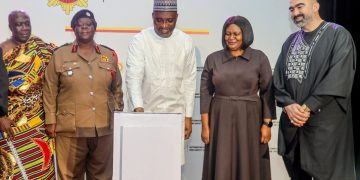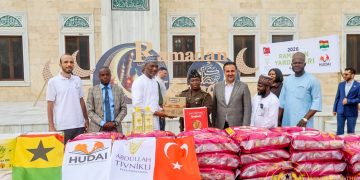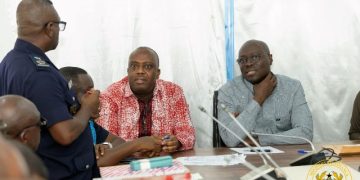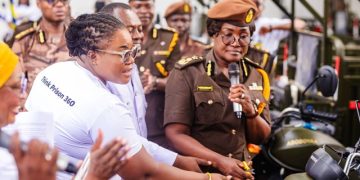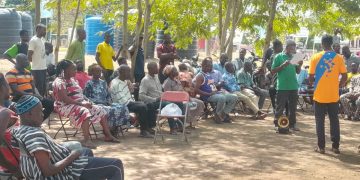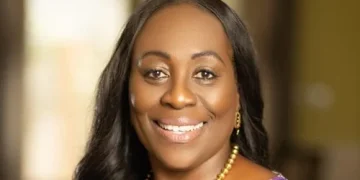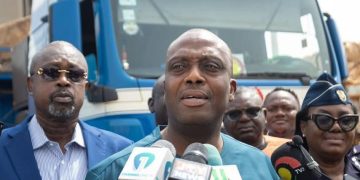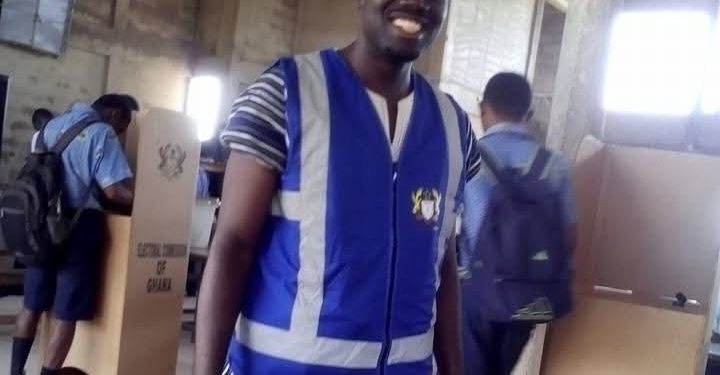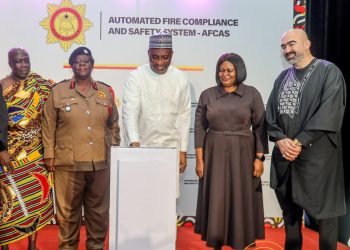A resurfaced image of Raphael Osei Owusu, a known member of the New Patriotic Party (NPP) and a former Returning Officer for the Electoral Commission (EC) in the 2016 elections, has sparked a heated debate on social media.
The revelation has reignited concerns about the neutrality of the Electoral Commission’s recruitment process and its failure to ensure impartiality in the country’s electoral process.
The controversy began when a Facebook post by Raphael Osei Owusu, the Deputy Headmaster of Osei Tutu Senior High School (OT) was shared.
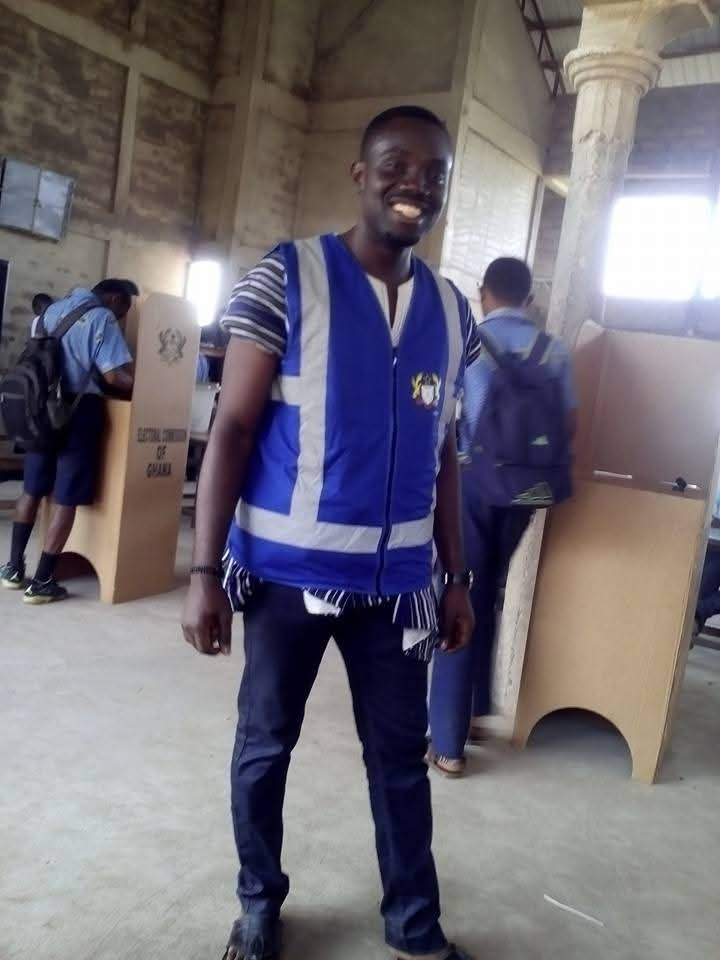
Patrick Kwame Atuah, a member of NDC reaction comment under the post drew widespread attention.
Atuah, who is also a member of the National Democratic Congress (NDC) Ashanti Regional Communication Team, post said “We the NDC have suffered before under the EC,” suggesting that the opposition party had previously faced unfair treatment by the Electoral Commission.
Many social media users, particularly NDC supporters, reacted to the post with frustration, alleging that the NPP strategically placed its members within the EC to manipulate the electoral process in 2016.
Some argued that the recruitment of known NPP-affiliated individuals as Returning Officers was part of a broader scheme to influence election results.
Critics argue that the EC’s failure to ensure political neutrality in its recruitment process undermines public trust in Ghana’s electoral system.
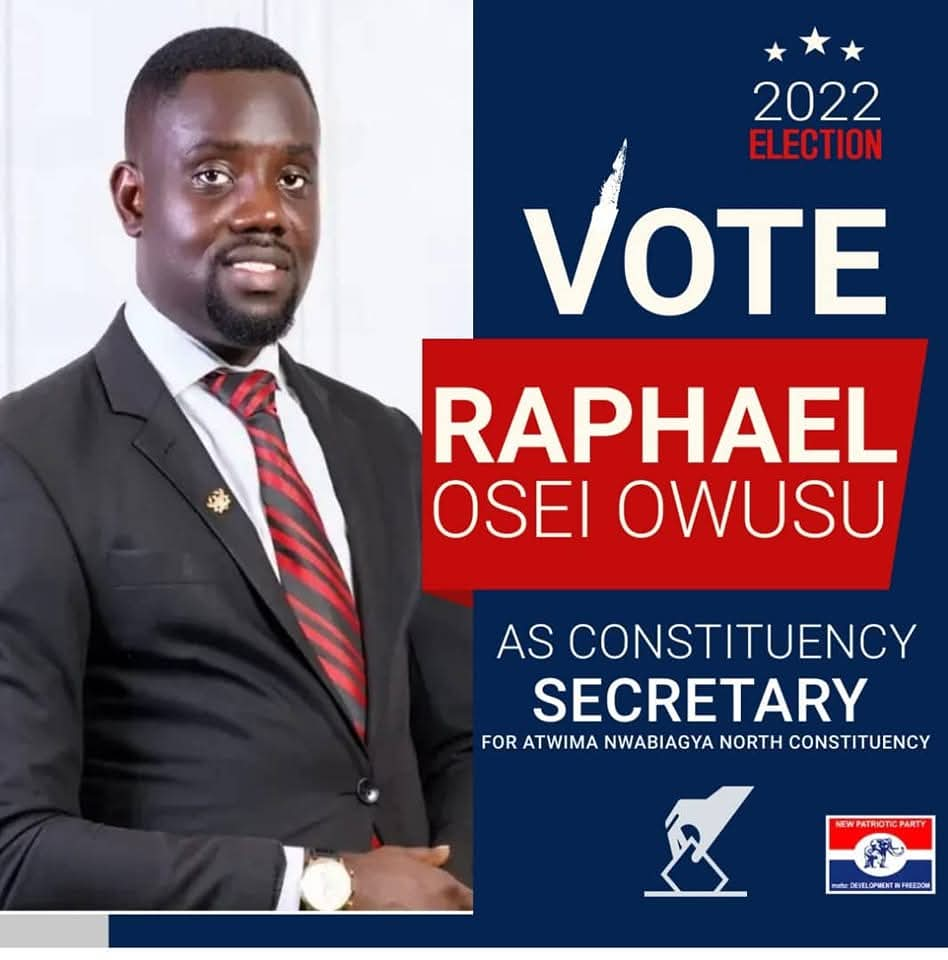
Election observers and political analysts have questioned how a well-known NPP communicator was allowed to serve as a Returning Officer, a role meant to be held by neutral individuals to guarantee the credibility of election results.
Many are calling on the EC to conduct a thorough review of its recruitment policies to prevent politically aligned individuals from holding such sensitive positions in future elections.
The issue has also sparked divisions within the NPP. While some members are celebrating Raphael Osei Owusu for his contributions, others fear that his public exposure could jeopardize future election strategies.
The resurfaced controversy has reignited calls for electoral reforms, with civil society organizations urging the Electoral Commission to take proactive measures to prevent politically biased recruitment.
Critics insist that a failure to address these concerns could lead to further mistrust in the electoral process ahead of future elections.
With growing demands for accountability, many Ghanaians are looking to the Electoral Commission and its regional directors to take decisive action to restore public confidence in the electoral system.
However, as it stands, the EC’s silence on the matter only deepens suspicions about its impartiality and commitment to free and fair elections.
Source: www.kumasimail.com


